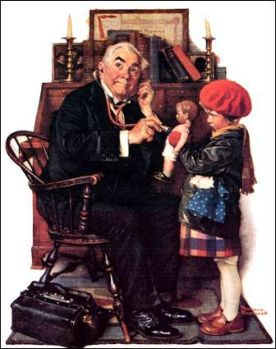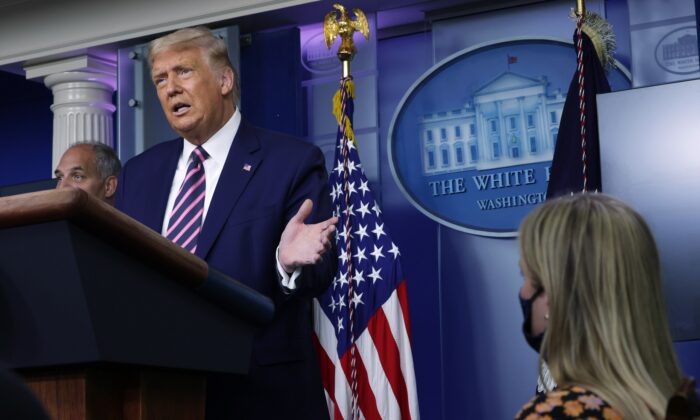“Media Bias” Revisited
From The New CriterionWell, it was enough to make a cat laugh, as Mark Twain says. Normally, I don’t like to write about “media bias.” You can’t have an argument with someone who doesn’t argue in good faith, and those who deny the charge of bias are nearly always doing so in bad faith. The privileged position occupied by the media in the national debate depends absolutely on frequent and vehement official insistence on their neutrality and “objectivity” — even though these ritual and unbelievable assertions fly in the face of the obvious truth that everyone is biased except those who simply don’t care. Apologists for “objectivity” acknowledge this fundamental truth on the one hand while insisting on the other on their “professional” qualification not to be affected by it, an absurd position. But if their refusal to see that the media are not just sometimes but always biased disqualifies them from having anything further to say of interest on the subject, it also means that they are not infrequently good for a laugh when the absurdities of their position are made manifest, or when they charge someone else with bias.
As a rule, the guardians of journalistic purity are too busy denying bias in themselves to be quite comfortable saying tu quoque. It might almost seem like a confirmation of their own bias to accuse someone else of it. Thus Tom Brokaw on the “Donahue” show last summer when asked about bias on the network news preferred to change the subject, replying: “I don’t think it’s a liberal agenda. It happens that journalism will always be spending more time on issues that seem to be liberal to some people; the problem of the downtrodden, the problem of civil rights and human rights, the problem of those people who don’t have a place at the table with the powerful.” But, Tom, as Phil Donahue did not say, how are we to regard this attempted justification of bias as a denial of bias? Isn’t there a logical difficulty there? Isn’t it just a little bit like the killer with the smoking gun in his hand who says: “I didn’t do it, and, anyway, he had it coming”?
But the humor of Mr Brokaw’s remark was as nothing compared to that of various post-election charges of bias emanating from those who are usually loudest in their proclamations of journalistic objectivity. Needless to say, when the New York Times levels the charge of bias it is not against anyone whose biases are shared by the New York Times. Even other progressively- disposed news organizations such as the Washington Post were shocked when the Times spiked the columns of two of its own sportswriters who did not toe the party line that Tiger Woods ought to boycott the Masters golf tournament because of the Augusta Country Club’s exclusion of women members. The news pages, happily, were otherwise in full agreement with the paper’s editorial policy on the matter and ran over 30 stories in the space of a few weeks, all with the purpose of treating Augusta’s decades old men-only rule as a newly-revealed scandal. Thus the paper thought it newsworthy if not scandalous that CBS, broadcasters of the Masters, did not share their editorial opinion either, which may explain the outrage that led to his censoring the authors of two signed columns.
In the end, the Times was embarrassed into reinstating the columns, though not before Gerald Boyd, the paper’s managing editor, explained the decision to kill them in a memo to staff. “Part of our strict separation between the news and editorial pages entails not attacking each other,” he wrote. “Intramural quarreling of that kind is unseemly and self-absorbed.” Wouldn’t you just know it? The New York Times finally comes out against self-absorption and it’s on behalf of self-censorship and self-conceit! But the incident only illustrated what should have been clear in any case, which is that the official fiction of journalistic “objectivity” and high-mindedness has bred in the editorial staff of the Times — among other writers and editors — a bedrock conviction of their own infallibility.
Taken to task for the paper’s excessive coverage of Augusta National’s obstinately continuing to be Augusta National, Boyd replied that “We’re writing about discrimination at one of the nation’s most prestigious golf clubs and involving one of the world’s most prominent tournaments. It’s an important story, economically, socially, politically, gender-wise, racially. I don’t know what it means to write too much about it.” Perhaps he really doesn’t. Perhaps the New York Times is so far insulated from competitive pressure that news judgment is by now entirely based on what the editors and writers want to publish (or think is “important”) and not at all on what readers want to read, since even New York Times readers could hardly have failed to notice that they were being manipulated.
But Mr Boyd’s remarks also illustrate the extent to which, for to such people, there are rarely any questions of biases to one side or the other because there only is one side: the side of decency and morality. And this attitude seeps more and more into political reporting and commentary, which will eventually all sound like the columns of Paul Krugman of the Times’s op ed page: so firmly persuaded of the soundness of its own judgment that honest political disagreement on any but trivial matters is impossible. On all the things that Krugman cares about, politics has been banished. Instead there is only right and wrong, truth and lies, decency and venality, good and evil. Obviously, similar assumptions are to be found elsewhere at the Times, which is what makes it particularly noteworthy when the Times is moved to level the charge not of error but of bias against others.
It happened in November when Bob Woodward’s new book, Bush at War, revealed a supposedly “controversial” memo from Roger Ailes, head of the Fox News Channel, sent to President Bush in the aftermath of the terror attacks of September 11, 2002. Though the memo’s contents remain unknown to anyone besides its author and recipient, the mere fact of his having sent it was considered by some of the guardians of the media’s vaunted “objectivity” as fatally compromising to Fox News. “Mr. Ailes’s action seems especially hypocritical for someone who has spent years trumpeting the fairness of Fox and the partisanship of just about everybody else in the news business,” clucked the New York Times’s editorial a propos of his “misstep.” “Fox’s promotional slogan is: ‘We report. You decide.’ But the news channel has a Republican tilt and a conservative agenda.”
Such high-mindedness would naturally be impossible for it if the Times were ever to admit what is obvious to the meanest intelligence, namely its own Democratic tilt and liberal agenda — which tells you something about why no one at the paper ever will admit it. So long as apologists for the media consensus can continue to insist, in the teeth of overwhelming evidence to the contrary that their media, the part of it that is biased towards them — which includes all the major networks and nearly all major newspapers in the country — is “objective” and therefore not biased, they have in their own minds a kind of authority that simply could not survive any acknowledgment of their bias. If they were just partisans like everybody else, they couldn’t pretend to speak with the same sense of self-importance that they have from this conceit of their own objectivity.
But how, I wonder, does the editorial writer distinguish in his own mind between Mr Ailes’s private tender of advice to the President (if that is what it was) and its own public advice, of quite a different tendency no doubt, offered up every day in those very columns? It’s not as if the memo was being presented to the public as news, like the story of CBS’s obstinate refusal to refrain from broadcasting the Masters golf tournament in spite of the outcry from, er, The New York Times. As the Wall Street Journal’s answering editorial recognized: “We can’t recall hearing similar press outrage, for example, when Rick Kaplan, former head of Fox News rival CNN, slept over at the [Clinton] White House.”
The Journal also noted that “the Ailes letter has also been a chance for the also-rans to whack their leading competitor. Fox News now beats CNN in prime time, even though CNN is carried in far more markets. Mr. Kaplan’s former network has flogged the Ailes story so hard that he soon may get more air time than CNN gave the sniper, or Robert Blake.” This might seem to make it more to the Times’s credit that it didn’t kill the story by Alex S. Jones that appeared slightly later headed: “Fox News Moves From the Margins to the Mainstream.” But the credit for this largely favorable report on Fox may not be so great as it might otherwise have been because the point of it was partly to establish the power of Fox News as a way of obliquely confirming Al Gore’s remarkable charge, in an interview with the New York Observer, “that there are some major institutional voices that are, truthfully speaking, part and parcel of the Republican Party.”
The first on Gore’s list of these “institutional voices” — along with the Washington Times and Rush Limbaugh — was the Fox News Channel, and Jones appears to confirm this judgment when he writes: “Like it or not, Fox has become the establishment, with critics now bemoaning not just what they say is its bias but its dominating influence.” These “critics” included Paul Krugman and E.J. Dionne, his counterpart on the Washington Post op ed page, who are at least as much “part and parcel” of the Democratic Party as any of those at whom they pointed the finger of scandal are of the Republican Party. But other liberals have actually learned to like the “bias” of the right.The former New York Times columnist, Leslie H. Gelb, for example, now president of the Council on Foreign Relations, was quoted by Mr Jones as saying that he “now considers Fox News Channel often to be a more reliable news source for international reporting than CNN or the nightly network news.”
According to Mr Gelb, Mr Ailes’s network presents a “‘fairer picture, a fuller version of the different parts of the arguments’ over world affairs.” And, Jones adds, “a lot of other people who do not fit comfortably into the right-wing stereotype of Fox viewers apparently agree.” That he would never have dreamed of referring to the “left-wing stereotype” of readers of the New York Times suggests that “bias” can only go one way, and this is born out a little further down in the article when he notes that “Mr. Gelb said he makes a distinction between Fox’s news coverage and its opinion programs, like ‘The O’Reilly Factor,’ which he considers biased. But even here, he finds himself drawn to Fox. ‘CNN’s commentary tends to be less biased and less interesting,’ he said.” An interesting concept, that of “biased” commentary. We have at least some conception of unbiased reporting might look like, but what would unbiased commentary look like? Isn’t the whole point of commentary to take up a bias, a particular direction of thought that you think is better than others, and try to defend it? If someone on the left does that, it’s not bias; if someone on the right does, it is.
Once again, the point is that what the right sees as “bias” is to the left just decency and common sense, which is part of what makes them so furious when the charge of bias is leveled against them. When Claire Shipman on ABC’s “This Week” told George Stephanopoulos that the manner in which the administration’s changes to air pollution limits on industry were announced indicated that they were ashamed of what they had done, George Will offered an alternative explanation. An attempt to play down the significance of a partial relaxation of regulations on industry for economic reasons was not a sign of shame but of the fact that “the media is in league with the professional hysterics in the environmental movement who have a financial — let’s put it on the table — a financial investment in saying the sky is falling.” Miss Shipman rejected this argument out of hand. “You can’t just blame this on us. There are Republican Governors who are very critical in the Northeast of what the administration is doing. That’s not the media fault.”
In short, there cannot be two opinions about something like air pollution. In Miss Shipman’s view it has become de-politicized. For her there are no complex arguments about economic tradeoffs, only the stark choice of being against it, like the good people, or for it, like conservative Republicans. In the same way, when Andy Rooney appeared on Phil Donahue’s show and, to the astonishment of the host, cheerfully confirmed the truth of Bernard Goldberg’s argument in Bias that, as Rooney put it, “most news people I know tend towards the liberal direction,” here is how Donahue answered him: “I think that most of the media think that homosexuals are people entitled to all the rights and the privileges in the Constitution. I believe that liberals, most liberals, are for choice in the matter of a woman’s reproductive capacity. If that’s liberal, yeah, I think we’re liberal.”
But of course he has just said he doesn’t think he and others in the media who share his views are liberal. “Liberal” is a political term and, for him, abortion and homosexuality are two matters that stand outside of politics, just as air pollution does for Claire Shipman. Just as tax policy does for Paul Krugman. Just as civil rights does for Tom Brokaw. Just as Social Security does for the Democratic National Committee. Obviously it is very much in the interest of any political party to have as many of its positions as possible identified with simple decency and equity, and it is precisely in encouraging the public in such an identification that “media bias” consists. On such matters, the media are inclined to believe, there can be no right and left, only right and wrong. What could it mean to say that someone is “biased” towards decency? Isn’t everyone? — apart, I mean, from the wicked, the stupid and the degenerate.
Such an attitude naturally leads, here and there, to attempts also to identify the wicked, the stupid and the degenerate, which may have been what produced the outcry against conservative bias in the post-election period. Tom Daschle, the Democratic majority leader in the Senate, went so far as to accuse Mr Limbaugh of fomenting violence against Democrats. His listeners, he said, “aren’t satisfied just to listen. They want to act because they got emotionally invested. And so, you know the threats to those of us in public life go up dramatically.” And, he added, “We see it in foreign countries and we think, well, my God, how can this religious fundamentalism become so violent? Well, it’s that same shrill rhetoric. It’s the same shrill power that motivates. . .Pretty soon, it becomes physical in addition to just verbal, and that’s happening in this country.”
Talk about emotionally invested! There was quite an outcry from the media watchdogs of the right that Daschle’s intemperate remarks were not more widely reported — and reported as intemperate — in the mainstream media, but these are so obviously the words of a man exhausted and exasperated after a losing campaign that it might be no more than a matter of tact to pretend that he never said them. More worrying to me is the ignorance of Daschle’s assumption — always supposing that at some level he really believes what he says — that vigorous, even hyperbolical democratic debate and Islamic fundamentalism have the same origins and results. Osama bin Laden’s hatred of good people like himself is apparently to T. Daschle just a slightly more enthusiastic version of Rush Limbaugh’s. On the other hand, that Mr Daschle might be supposed to understand our enemies so little could explain a lot.
John Leland, writing in the New York Times ’s “Week in Review” section, did not go so far as Senator Daschle, but he can hardly be supposed to be any fonder of Mr Limbaugh. Having applied to Robert Thompson, someone calling himself a professor of media and popular culture at Syracuse University, for an explanation of “why the right rules the radio waves,” he was told that “the liberal tradition as we understand it acknowledges a diversity of people and values” which is “easily thrown back in their face by making them” — that is, presumably, liberals — “look mealy-mouthed.” The flattering assumption to the left here is of course that they are too clever to go over well on what is essentially a medium for stupid people, which is the less diplomatic way to speak of those without a proper appreciation for “a diversity of people and values.”
The same assumption is behind Mr Leland’s conclusion that “whatever the effects of the conservative dominance of the radio dial, there’s no one on the left who can carve meat like Mr. Limbaugh or Mr. [Sean] Hannity. As for the earnest Ivy League variety, ever eager to engage in serious debate over significant issues, they can always go write for ‘The West Wing’. Its ratings have been falling, by the way.” The earnest Ivy Leaguer has always been easily persuaded that his tastes make up in intelligence for what they lack in general popularity. Sometimes they do too. But there is nothing in the least intelligent about attempting to replace political differences with moral ones. It is that, and not criticism of Senator Daschle, which is truly reminiscent of the aims of Islamic fundamentalism.
Discover more from James Bowman
Subscribe to get the latest posts to your email.







